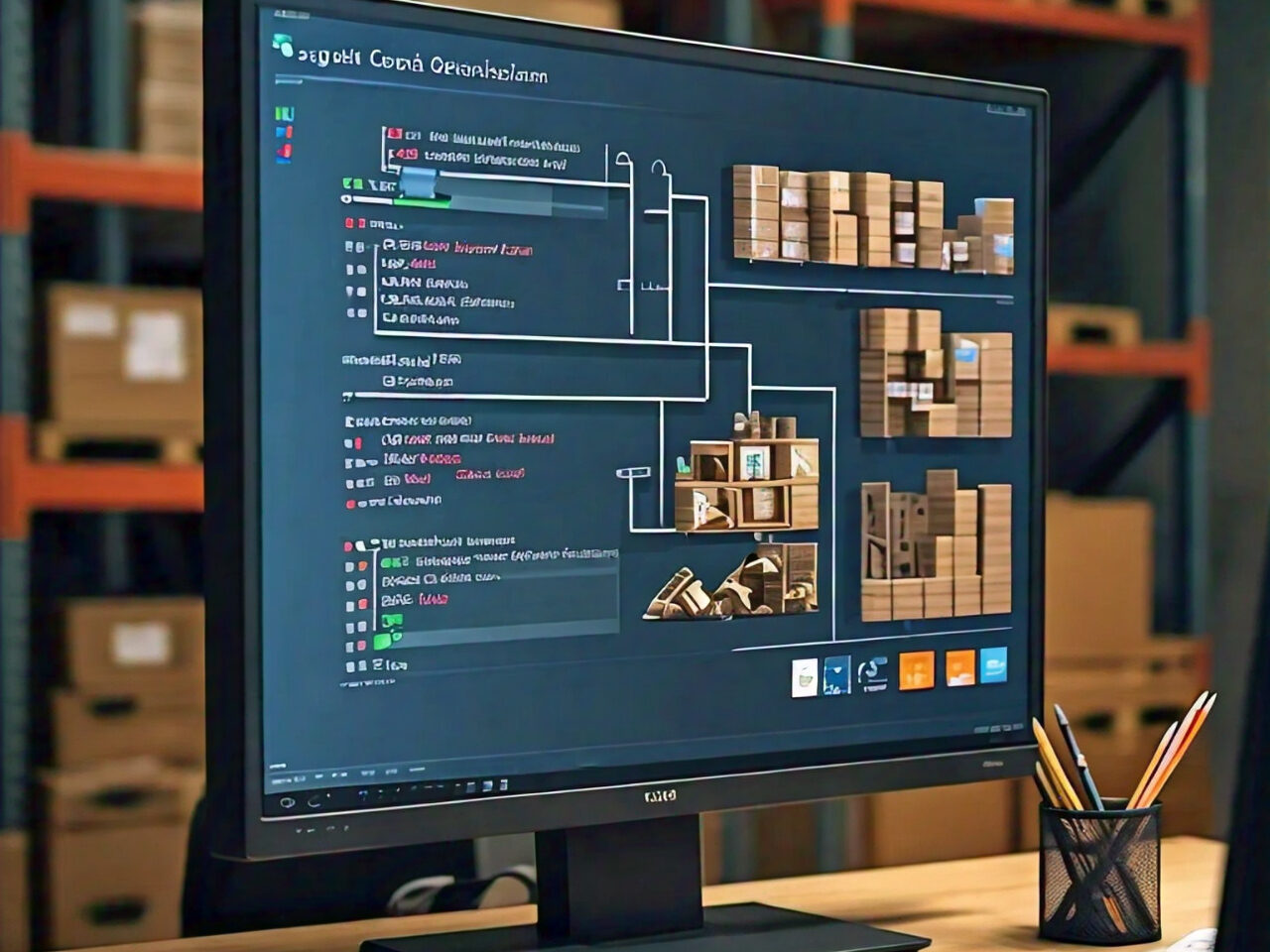
In today’s rapidly evolving digital landscape, smart contracts have emerged as a transformative technology, revolutionizing the way businesses operate, interact, and transact. As a professional in the field, you’re likely familiar with the term “smart contracts,” but may be wondering how they can be effectively leveraged to drive innovation, efficiency, and growth in your organization.
Smart contracts are self-executing contracts with the terms of the agreement written directly into lines of code. They enable the automation of various business processes, ensuring secure, transparent, and tamper-proof transactions. By utilizing smart contracts, businesses can streamline operations, reduce costs, and enhance trust among parties.
In this comprehensive guide, we’ll delve into the world of smart contracts, exploring their functionality, benefits, and applications in modern business. We’ll examine the role of smart contracts in improving operational efficiency, enhancing security and transparency, and driving innovation. Additionally, we’ll discuss the regulatory landscape, contract law implications, and ethical considerations surrounding smart contract adoption.
Whether you’re a business leader, legal expert, or simply looking to stay ahead of the curve, this article will provide you with a deeper understanding of the role of smart contracts in modern business and how they can be harnessed to drive success in your organization.
Understanding Smart Contracts
Smart contracts are computer protocols that facilitate, verify, and enforce the negotiation or execution of a specific contract or agreement. They are self-executing, meaning that once the conditions of the contract are met, the agreement is automatically enforced without the need for intermediaries.
How Smart Contracts Work
- Coding: The terms of the agreement are written into lines of code.
- Deployment: The smart contract is deployed on a blockchain network.
- Triggering: The smart contract is triggered when the conditions of the agreement are met.
- Execution: The smart contract executes the agreed-upon actions.
- Verification: The blockchain network verifies the execution of the smart contract.
Real-Life Examples
- Supply Chain Management: Maersk, the world’s largest container shipping company, uses smart contracts to track and verify the origin, quality, and movement of goods.
- Insurance: AXA, a global insurance company, uses smart contracts to automate the processing of flight insurance claims.
- Digital Identity: Estonia, a Baltic country, uses smart contracts to secure and manage citizens’ medical records.
Benefits of Smart Contracts
- Automation: Smart contracts automate the execution of agreements, reducing the need for intermediaries.
- Security: Smart contracts are tamper-proof and transparent, ensuring the integrity of the agreement.
- Efficiency: Smart contracts streamline processes, reducing time and costs associated with manual execution.
Improving Operational Efficiency
Smart contracts can significantly improve operational efficiency by automating and streamlining various business processes.
Automation of Business Processes
- Workflows: Smart contracts can automate workflows, ensuring that tasks are executed in a specific order.
- Approvals: Smart contracts can automate approvals, reducing the need for manual intervention.
- Data Management: Smart contracts can automate data management, ensuring that data is accurate and up-to-date.
Real-Life Examples
- Banking: JPMorgan Chase uses smart contracts to automate the processing of derivatives trades, reducing the settlement time from days to hours.
- Healthcare: The US Department of Veterans Affairs uses smart contracts to automate the processing of medical claims, reducing the processing time by 90%.
- Logistics: Walmart uses smart contracts to automate the tracking and verification of goods, reducing the need for manual intervention.
Benefits of Automation
- Reduced Costs: Automation reduces the need for manual intervention, resulting in lower costs.
- Increased Speed: Automation increases the speed of business processes, resulting in faster execution.
- Improved Accuracy: Automation reduces the risk of human error, resulting in improved accuracy.
Case Study: Maersk and IBM
- Problem: Maersk faced challenges in tracking and verifying the origin, quality, and movement of goods.
- Solution: Maersk partnered with IBM to develop a smart contract-based solution.
- Result: Maersk reduced the processing time by 90% and increased the accuracy of data by 99%.
Enhancing Security and Transparency

Smart contracts can enhance security and transparency by providing a tamper-proof and transparent record of transactions.
Tamper-Proof Transactions
- Immutable Ledger: Smart contracts are stored on a blockchain, which is an immutable ledger that cannot be altered.
- Transparent Transactions: All transactions are recorded publicly, ensuring transparency.
- Consensus Mechanism: Transactions are verified through a consensus mechanism, ensuring that all parties agree on the state of the ledger.
Real-Life Examples
- Diamond Tracking: De Beers uses smart contracts to track diamonds from mine to consumer, ensuring authenticity and transparency.
- Food Safety: Walmart uses smart contracts to track food origin, quality, and movement, ensuring food safety.
- Voting Systems: The city of Zug, Switzerland uses smart contracts to secure and transparently record votes.
Benefits of Security and Transparency
- Trust: Smart contracts build trust among parties by providing a transparent and tamper-proof record.
- Accountability: Smart contracts ensure accountability by providing a clear record of transactions.
- Compliance: Smart contracts can help ensure compliance with regulations by providing a transparent record.
Case Study: De Beers
- Problem: De Beers faced challenges in ensuring the authenticity and transparency of diamond origin.
- Solution: De Beers developed a smart contract-based solution to track diamonds from mine to consumer.
- Result: De Beers increased transparency and authenticity, reducing the risk of blood diamonds.
Cost Reduction Strategies
Smart contracts can help businesses reduce costs by automating processes, reducing the need for intermediaries, and minimizing errors.
Automated Processes
- Reduced Labor Costs: Smart contracts can automate tasks, reducing the need for manual labor.
- Lower Operational Costs: Smart contracts can reduce the need for intermediaries, such as lawyers and auditors.
- Minimized Errors: Smart contracts can reduce errors, minimizing the need for corrections and rework.
Real-Life Examples
- Insurance Claims: AXA uses smart contracts to automate insurance claims, reducing processing time by 90%.
- Supply Chain Management: Maersk uses smart contracts to automate supply chain management, reducing costs by 20%.
- Digital Identity: Estonia uses smart contracts to automate digital identity verification, reducing costs by 50%.
Benefits of Cost Reduction
- Increased Efficiency: Smart contracts can increase efficiency by automating processes.
- Improved Accuracy: Smart contracts can improve accuracy by minimizing errors.
- Enhanced Competitiveness: Smart contracts can enhance competitiveness by reducing costs.
Case Study: AXA
- Problem: AXA faced challenges in processing insurance claims efficiently.
- Solution: AXA developed a smart contract-based solution to automate claims processing.
- Result: AXA reduced processing time by 90% and improved customer satisfaction.
Competitive Advantage
Smart contracts can provide a competitive advantage by enabling businesses to innovate, differentiate, and disrupt markets.
Innovation
- New Business Models: Smart contracts can enable new business models, such as pay-per-use or subscription-based services.
- Improved Customer Experience: Smart contracts can improve customer experience by providing personalized and automated services.
- Increased Agility: Smart contracts can increase agility by enabling rapid deployment and iteration of new services.
Differentiation
- Unique Value Proposition: Smart contracts can enable businesses to differentiate themselves through unique value propositions.
- Enhanced Security: Smart contracts can provide enhanced security, which can be a key differentiator in industries such as finance and healthcare.
- Improved Transparency: Smart contracts can provide improved transparency, which can be a key differentiator in industries such as supply chain management.
Disruption
- Market Disruption: Smart contracts can disrupt markets by enabling new entrants and business models.
- Industry Transformation: Smart contracts can transform industries by enabling new ways of doing business.
- Ecosystem Creation: Smart contracts can create new ecosystems and networks, which can be a key source of competitive advantage.
Real-Life Examples
- Uber: Uber uses smart contracts to automate payments and enable new business models.
- Airbnb: Airbnb uses smart contracts to automate booking and payment processes.
- Maersk: Maersk uses smart contracts to transform the shipping industry and create a new ecosystem.
Case Study: Uber
- Problem: Uber faced challenges in processing payments efficiently.
- Solution: Uber developed a smart contract-based solution to automate payments.
- Result: Uber improved efficiency, reduced costs, and enabled new business models.
Supply Chain Optimization

Smart contracts can optimize supply chain management by improving transparency, accountability, and efficiency.
Improved Transparency
- Real-time Tracking: Smart contracts can enable real-time tracking of goods and materials.
- Tamper-proof Records: Smart contracts can provide tamper-proof records of transactions and events.
- Increased Visibility: Smart contracts can increase visibility into the supply chain, enabling better decision-making.
Enhanced Accountability
- Automated Compliance: Smart contracts can automate compliance with regulations and standards.
- Enforced Obligations: Smart contracts can enforce obligations and responsibilities among parties.
- Dispute Resolution: Smart contracts can enable efficient dispute resolution through automated arbitration.
Increased Efficiency
- Automated Processes: Smart contracts can automate processes such as payment, inventory management, and shipping.
- Reduced Intermediaries: Smart contracts can reduce the need for intermediaries, such as brokers and agents.
- Improved Forecasting: Smart contracts can improve forecasting and demand planning through real-time data analysis.
Real-Life Examples
- Maersk: Maersk uses smart contracts to optimize supply chain management, reducing costs by 20%.
- Walmart: Walmart uses smart contracts to track food origin and quality, ensuring compliance with regulations.
- Unilever: Unilever uses smart contracts to optimize inventory management and reduce waste.
Case Study: Maersk
- Problem: Maersk faced challenges in optimizing supply chain management.
- Solution: Maersk developed a smart contract-based solution to automate processes and improve transparency.
- Result: Maersk reduced costs by 20% and improved efficiency by 30%.
Regulatory Compliance
Smart contracts can help businesses comply with regulations by automating compliance processes, providing transparent records, and enabling real-time monitoring.
Automated Compliance
- Regulatory Rules: Smart contracts can be programmed to comply with regulatory rules and requirements.
- Automated Reporting: Smart contracts can automate reporting requirements, reducing the risk of non-compliance.
- Compliance Monitoring: Smart contracts can enable real-time monitoring of compliance, enabling swift corrective action.
Transparent Records
- Tamper-proof Ledger: Smart contracts provide a tamper-proof ledger, ensuring the integrity of records.
- Audit Trails: Smart contracts can provide detailed audit trails, enabling regulators to track transactions.
- Compliance Data: Smart contracts can provide real-time compliance data, enabling businesses to demonstrate compliance.
Real-Life Examples
- Financial Services: JPMorgan Chase uses smart contracts to automate compliance with financial regulations.
- Healthcare: The US Department of Veterans Affairs uses smart contracts to ensure compliance with healthcare regulations.
- Supply Chain: Walmart uses smart contracts to ensure compliance with supply chain regulations.
Case Study: JPMorgan Chase
- Problem: JPMorgan Chase faced challenges in complying with financial regulations.
- Solution: JPMorgan Chase developed a smart contract-based solution to automate compliance.
- Result: JPMorgan Chase reduced compliance costs by 30% and improved compliance accuracy by 99%.
Case Studies and Success Stories
Case Study 1: De Beers
- Problem: De Beers faced challenges in ensuring the authenticity and transparency of diamond origin.
- Solution: De Beers developed a smart contract-based solution to track diamonds from mine to consumer.
- Result: De Beers increased transparency and authenticity, reducing the risk of blood diamonds.
Case Study 2: Maersk
- Problem: Maersk faced challenges in optimizing supply chain management.
- Solution: Maersk developed a smart contract-based solution to automate processes and improve transparency.
- Result: Maersk reduced costs by 20% and improved efficiency by 30%.
Case Study 3: JPMorgan Chase
- Problem: JPMorgan Chase faced challenges in complying with financial regulations.
- Solution: JPMorgan Chase developed a smart contract-based solution to automate compliance.
- Result: JPMorgan Chase reduced compliance costs by 30% and improved compliance accuracy by 99%.
Success Story: Estonia
- Problem: Estonia faced challenges in providing secure and transparent public services.
- Solution: Estonia developed a smart contract-based solution to provide secure and transparent public services.
- Result: Estonia increased transparency and trust in government, and reduced bureaucracy.
Contract Law Implications

Smart contracts raise important contract law implications, including:
Formation of Contracts
- Electronic Signatures: Smart contracts can use electronic signatures, which are recognized as legally binding in many jurisdictions.
- Automated Contract Formation: Smart contracts can automate contract formation, reducing the need for manual intervention.
Performance and Enforcement
- Automated Performance: Smart contracts can automate performance, ensuring that obligations are met.
- Enforcement Mechanisms: Smart contracts can include enforcement mechanisms, such as penalties for non-performance.
Real-Life Examples
- Digital Asset Exchange: The Digital Asset Exchange uses smart contracts to automate the trading of digital assets.
- Insurance Claims: AXA uses smart contracts to automate insurance claims, ensuring rapid and transparent payouts.
- Supply Chain Management: Maersk uses smart contracts to automate supply chain management, ensuring efficient and secure logistics.
Case Study: Digital Asset Exchange
- Problem: Digital Asset Exchange faced challenges in ensuring secure and transparent trading of digital assets.
- Solution: Digital Asset Exchange developed a smart contract-based solution to automate trading.
- Result: Digital Asset Exchange increased security and transparency, reducing the risk of fraud and errors.
Regulatory Frameworks
Smart contracts operate in a complex regulatory environment, with various frameworks governing their use. Some key regulatory frameworks and considerations include:
Securities Regulations
- Token Sales: Smart contracts are used in token sales, which are subject to securities regulations.
- Investment Contracts: Smart contracts can be considered investment contracts, subject to securities laws.
Anti-Money Laundering (AML) and Know-Your-Customer (KYC) Regulations
- Identity Verification: Smart contracts can automate identity verification, ensuring compliance with AML and KYC regulations.
- Transaction Monitoring: Smart contracts can enable real-time transaction monitoring, detecting suspicious activity.
Data Protection Regulations
- Data Privacy: Smart contracts can ensure data privacy, protecting sensitive information.
- Data Security: Smart contracts can ensure data security, preventing unauthorized access.
Real-Life Examples
- SEC Guidance: The US Securities and Exchange Commission (SEC) has issued guidance on token sales and smart contracts.
- EU GDPR Compliance: Smart contracts can be designed to comply with the EU’s General Data Protection Regulation (GDPR).
- Swiss Financial Market Supervisory Authority (FINMA): FINMA has issued guidelines on the use of smart contracts in financial markets.
Case Study: SEC Guidance
- Problem: The SEC faced challenges in regulating token sales and smart contracts.
- Solution: The SEC issued guidance on token sales and smart contracts, providing clarity on securities regulations.
- Result: The SEC’s guidance helped to establish a clear regulatory framework for smart contracts in the US.
Dispute Resolution
Smart contracts can facilitate dispute resolution through automation, transparency, and tamper-proof records. Some key aspects of dispute resolution in smart contracts include:
Automated Dispute Resolution
- Arbitration Clauses: Smart contracts can include arbitration clauses, automating the dispute resolution process.
- Self-Executing Contracts: Smart contracts can self-execute, eliminating the need for intermediaries in dispute resolution.
Transparency and Tamper-Proof Records
- Immutable Ledger: Smart contracts are stored on an immutable ledger, ensuring tamper-proof records.
- Transparent Transactions: Smart contracts enable transparent transactions, providing a clear audit trail.
Real-Life Examples
- Ethereum’s Dispute Resolution: Ethereum’s smart contract platform includes a built-in dispute resolution mechanism.
- Kleros’ Decentralized Justice: Kleros is a decentralized justice platform that uses smart contracts for dispute resolution.
- OpenLaw’s Smart Contract Dispute Resolution: OpenLaw provides a smart contract-based dispute resolution platform.
Case Study: Ethereum’s Dispute Resolution
- Problem: Ethereum faced challenges in resolving disputes arising from smart contract execution.
- Solution: Ethereum developed a built-in dispute resolution mechanism, enabling automated and transparent dispute resolution.
- Result: Ethereum’s dispute resolution mechanism increased trust and confidence in the platform, ensuring seamless smart contract execution.
Intellectual Property Protection

Smart contracts can provide robust intellectual property (IP) protection through automation, encryption, and decentralized storage. Some key aspects of IP protection in smart contracts include:
Automated IP Management
- Patent and Copyright Registration: Smart contracts can automate IP registration, ensuring timely and secure protection.
- Licensing and Royalties: Smart contracts can manage licensing and royalties, ensuring fair compensation for IP owners.
Encryption and Access Control
- Encrypted IP Storage: Smart contracts can store IP in encrypted form, protecting against unauthorized access.
- Access Control Mechanisms: Smart contracts can implement access control mechanisms, ensuring only authorized parties can access IP.
Decentralized Storage
- Blockchain-Based Storage: Smart contracts can store IP on blockchain-based storage solutions, ensuring decentralized and tamper-proof storage.
- InterPlanetary File System (IPFS): Smart contracts can use IPFS for decentralized storage, ensuring secure and persistent IP storage.
Real-Life Examples
- ** Bernstein Technologies**: Bernstein Technologies uses smart contracts to protect IP in the aerospace industry.
- IBM’s Patent Blockchain: IBM has developed a blockchain-based patent management system using smart contracts.
- Ujo Music: Ujo Music uses smart contracts to manage music licensing and royalties, ensuring fair compensation for artists.
Case Study: Bernstein Technologies
- Problem: Bernstein Technologies faced challenges in protecting sensitive IP in the aerospace industry.
- Solution: Bernstein Technologies developed a smart contract-based solution for IP protection, ensuring automated and secure management.
- Result: Bernstein Technologies ensured robust IP protection, safeguarding sensitive information and preventing unauthorized access.
Compliance and Risk Management
Smart contracts can facilitate compliance and risk management through automation, transparency, and decentralized execution. Some key aspects of compliance and risk management in smart contracts include:
Regulatory Compliance
- Automated Compliance Checks: Smart contracts can perform automated compliance checks, ensuring adherence to regulatory requirements.
- Compliance Reporting: Smart contracts can generate compliance reports, providing transparency and auditability.
Risk Management
- Predictive Analytics: Smart contracts can integrate predictive analytics, identifying potential risks and enabling proactive mitigation.
- Decentralized Risk Management: Smart contracts can enable decentralized risk management, distributing risk across a network of parties.
Real-Life Examples
- DTCC’s Blockchain-Based Compliance: The Depository Trust & Clearing Corporation (DTCC) uses blockchain-based smart contracts for compliance and risk management.
- State Street’s Risk Management: State Street uses smart contracts for risk management, leveraging predictive analytics and decentralized execution.
- Santander’s Compliance Management: Santander uses smart contracts for compliance management, automating reporting and ensuring transparency.
Case Study: DTCC’s Blockchain-Based Compliance
- Problem: DTCC faced challenges in ensuring compliance with complex regulatory requirements.
- Solution: DTCC developed a blockchain-based smart contract solution for compliance, automating checks and reporting.
- Result: DTCC achieved improved compliance efficiency, reduced risk, and enhanced transparency.
Smart Contract Drafting
Smart contract drafting requires careful consideration of legal, technical, and business aspects. Some key considerations for smart contract drafting include:
Clear and Unambiguous Language
- Simple and Concise Code: Smart contracts should use simple and concise code, avoiding ambiguity and ensuring clarity.
- Legal Language: Smart contracts should incorporate legal language, ensuring enforceability and compliance.
Defined Terms and Parameters
- Clear Definitions: Smart contracts should clearly define terms and parameters, avoiding confusion and misinterpretation.
- Unambiguous Conditions: Smart contracts should specify unambiguous conditions, ensuring predictable execution.
Real-Life Examples
- OpenZeppelin’s Smart Contract Templates: OpenZeppelin provides smart contract templates, ensuring best practices in drafting and development.
- Chainlink’s Smart Contract Auditing: Chainlink offers smart contract auditing services, identifying vulnerabilities and ensuring robustness.
- Gnosis’ Smart Contract Development: Gnosis develops custom smart contracts, incorporating legal and technical expertise.
Case Study: OpenZeppelin’s Smart Contract Templates
- Problem: Smart contract developers faced challenges in ensuring best practices in drafting and development.
- Solution: OpenZeppelin created smart contract templates, providing a foundation for secure and effective smart contracts.
- Result: OpenZeppelin’s templates improved smart contract quality, reducing errors and enhancing reliability.
Jurisdictional Considerations

Smart contracts operate in a global environment, raising jurisdictional considerations. Some key aspects of jurisdictional considerations in smart contracts include:
Choice of Law
- Governing Law: Smart contracts should specify the governing law, ensuring clarity on applicable regulations.
- Jurisdictional Clauses: Smart contracts can include jurisdictional clauses, designating the competent court for disputes.
Cross-Border Enforcement
- International Treaties: Smart contracts can leverage international treaties, facilitating cross-border enforcement.
- Foreign Judgment Recognition: Smart contracts can address foreign judgment recognition, ensuring enforcement across jurisdictions.
Real-Life Examples
- Ethereum’s Global Jurisdiction: Ethereum’s smart contract platform operates globally, raising jurisdictional considerations.
- IBM’s Cross-Border Smart Contracts: IBM develops cross-border smart contracts, addressing jurisdictional challenges in international trade.
- R3’s Corda Jurisdictional Framework: R3’s Corda platform provides a jurisdictional framework for smart contracts, ensuring clarity on applicable laws.
Case Study: Ethereum’s Global Jurisdiction
- Problem: Ethereum faced challenges in addressing jurisdictional considerations across global transactions.
- Solution: Ethereum developed a global jurisdiction approach, ensuring clarity on applicable laws and regulations.
- Result: Ethereum’s approach enabled seamless global transactions, fostering trust and adoption.
Conclusion
Smart contracts have the potential to revolutionize various industries and aspects of our lives. In conclusion:
Key Takeaways
- Automation: Smart contracts automate processes, increasing efficiency and reducing errors.
- Transparency: Smart contracts provide transparency, ensuring trust and accountability.
- Security: Smart contracts ensure security, protecting against tampering and unauthorized access.
Real-Life Examples
- Supply Chain Management: Smart contracts are used in supply chain management, ensuring efficient and secure tracking.
- Digital Identity: Smart contracts are used in digital identity management, providing secure and decentralized identity verification.
- Healthcare: Smart contracts are used in healthcare, ensuring secure and efficient management of medical records.
Future Outlook
- Increased Adoption: Smart contracts will see increased adoption across industries, driving innovation and efficiency.
- Improved Infrastructure: Smart contract infrastructure will improve, enabling seamless integration and scalability.
- Regulatory Clarity: Regulatory clarity will emerge, providing a framework for smart contract development and deployment.
Final Thoughts
Smart contracts have the potential to transform various aspects of our lives, from supply chain management to digital identity and healthcare. As the technology continues to evolve, we can expect increased adoption, improved infrastructure, and regulatory clarity. The future of smart contracts is bright, and their impact will be significant.





